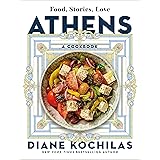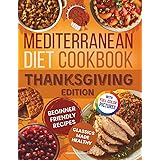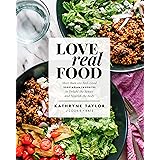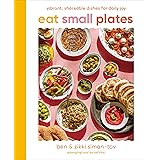Achieving sustainable weight loss is often perceived as a daunting task, yet the reality is that significant progress can be made simply by making informed choices about the foods consumed daily. As effectively highlighted in the accompanying video, the selection of nutrient-dense, satisfying foods forms the cornerstone of an effective weight management strategy. By prioritizing specific items that naturally support satiety, boost metabolism, and manage cravings, an individual’s journey toward a healthier weight becomes considerably more manageable and even enjoyable.
The emphasis here is not on restrictive diets or expensive supplements; instead, the focus is placed upon incorporating readily available, everyday foods into one’s regular eating patterns. These selections are known for their ability to contribute to feelings of fullness, stabilize blood sugar levels, and provide essential nutrients, all of which are crucial elements when working to lose weight and maintain it long-term. Let us explore these powerful food categories further, understanding how they can be seamlessly integrated into any lifestyle for optimal health outcomes.
Fueling Your Metabolism: Protein Powerhouses for Sustainable Weight Loss
Protein is an indispensable macronutrient when weight management is desired. Its thermic effect is higher than that of carbohydrates or fats, meaning more calories are burned during its digestion and absorption. Furthermore, protein plays a vital role in preserving lean muscle mass, which is a key contributor to a healthy resting metabolism. Incorporating adequate protein helps to ensure that fat, not muscle, is lost during a caloric deficit.
Eggs: A Complete Nutrition Package
Eggs are frequently lauded as a ‘perfect protein’ due to their complete amino acid profile and high bioavailability. A single large egg contains about 6 grams of protein and around 70-80 calories, making them an excellent choice for those aiming to reduce caloric intake without sacrificing nutritional value. The consumption of eggs for breakfast has been shown in studies to increase satiety, leading to reduced calorie consumption later in the day.
- **Sustained Satiety:** The protein and healthy fats in eggs work synergistically to slow digestion, keeping hunger at bay for several hours. This often results in less snacking between meals.
- **Nutrient Density:** Eggs are packed with vitamins B12, D, and selenium, vital for energy production and overall well-being. Choline, another important nutrient found in eggs, supports brain health and metabolism.
- **Versatility:** Beyond boiled or scrambled, eggs can be enjoyed in omelets with vegetables, poached on whole-grain toast, or even baked into frittatas for easy meal prep.
Greek Yogurt: Probiotic-Rich Protein
Plain Greek yogurt stands out as a superior dairy choice for weight loss. Its protein content is significantly higher than regular yogurt, sometimes double, with less sugar, especially when unsweetened varieties are chosen. The beneficial probiotics in Greek yogurt are known to support gut health, which is increasingly understood to influence metabolism and weight.
- **Hunger Hormone Regulation:** The high protein content helps to regulate ghrelin, the ‘hunger hormone,’ leading to better appetite control.
- **Digestive Benefits:** Probiotics actively contribute to a balanced gut microbiome, which is associated with improved digestion and nutrient absorption. A healthy gut is often linked to more efficient weight management.
- **Serving Suggestions:** For added flavor and nutrients without excess sugar, plain Greek yogurt can be combined with fresh berries, a sprinkle of cinnamon, or a small amount of unsweetened granola.
Lean Protein Sources: Chicken Breast and Beyond
Lean protein sources like chicken breast, turkey, fish, or even plant-based options such as tofu and tempeh, are essential for building and maintaining muscle mass. Muscle tissue burns more calories at rest than fat tissue, making it a critical component of a healthy metabolism. The digestion of protein itself requires a significant amount of energy, further contributing to caloric expenditure.
- **Metabolic Boost:** Consistent intake of lean protein supports muscle synthesis and repair, which is fundamental for an active metabolism.
- **Satiating Effect:** Protein keeps you feeling full, reducing the likelihood of overeating or reaching for less healthy snacks.
- **Preparation Matters:** Grilling, baking, roasting, or steaming are preferred cooking methods for lean proteins, as frying can add unnecessary calories and unhealthy fats, counteracting weight loss efforts.
Embracing Fiber: The Key to Satiety and Digestive Health
Dietary fiber, particularly soluble fiber, is a game-changer for those aiming to lose weight. It absorbs water in the digestive tract, forming a gel-like substance that slows digestion, promotes fullness, and helps stabilize blood sugar. Insoluble fiber adds bulk to stool, aiding in regular bowel movements and overall digestive regularity.
Oatmeal: A Hearty and Healthy Start
Rolled oats, rather than instant packets, provide a sustained release of energy and a substantial amount of soluble fiber. This helps to prevent rapid spikes and crashes in blood sugar, which are often followed by intense cravings and energy slumps. A bowl of properly prepared oatmeal can serve as a satisfying and energizing breakfast.
- **Blood Sugar Balance:** The complex carbohydrates and fiber in rolled oats are digested slowly, preventing abrupt increases in blood glucose levels.
- **Extended Fullness:** Soluble fiber, particularly beta-glucan found in oats, creates a feeling of fullness that lasts for hours, reducing the urge to snack.
- **Customization:** Oatmeal can be flavored with cinnamon, fresh fruit, a small handful of nuts, or a dash of unsweetened milk, avoiding the added sugars prevalent in many instant varieties.
Leafy Greens: Nutrient-Dense Volume
Spinach, kale, lettuce, and other leafy greens are incredibly low in calories but exceptionally high in fiber, vitamins, and minerals. They offer significant volume, allowing for a satisfying meal without a high caloric cost. Filling half of a plate with greens naturally displaces higher-calorie components, contributing to an overall reduction in energy intake.
- **Calorie Efficiency:** The high water and fiber content mean a large portion of greens can be consumed for very few calories, promoting satiety without caloric excess.
- **Micronutrient Powerhouse:** Leafy greens are rich in vitamins K, A, C, folate, and various antioxidants, supporting overall health and bodily functions crucial for weight management.
- **Digestive Aid:** The fiber content helps prevent constipation and supports a healthy digestive system, which is important for eliminating waste and reducing bloating.
Apples: The Satisfying Sweet Treat
An apple is often considered an ideal snack because it offers natural sweetness alongside a significant amount of fiber and water. Consuming an apple before a meal can strategically reduce overall calorie intake during the subsequent main course. Its crunchy texture also contributes to a feeling of satisfaction.
- **Pre-meal Strategy:** The fiber and water in an apple help to fill the stomach, signaling to the brain that less food is needed during the following meal.
- **Craving Buster:** Apples provide a healthy alternative to sugary treats, satisfying sweet cravings without the empty calories or blood sugar roller coaster.
- **Portable Perfection:** Apples are convenient and easy to carry, making them an excellent on-the-go snack option.
Chia Seeds: Tiny but Mighty
Chia seeds possess a remarkable ability to absorb liquid and expand, forming a gel-like consistency. When consumed, this expansion occurs in the stomach, promoting an extended feeling of fullness. These seeds are also an excellent source of omega-3 fatty acids, fiber, and protein, all beneficial for overall health and weight loss efforts.
- **Exceptional Satiety:** Their ability to swell significantly helps to create a sense of fullness that can last for several hours, preventing unnecessary snacking.
- **Digestive Regularity:** The high fiber content is crucial for maintaining regular bowel movements, which is a often overlooked aspect of weight management and belly fat reduction.
- **Easy Integration:** Chia seeds can be easily incorporated into smoothies, stirred into oatmeal or yogurt, or even added to water with a squeeze of lemon for a hydrating, nutrient-dense drink.
Cucumbers & Carrots: Crunchy, Hydrating Snacks
When cravings for salty or crunchy snacks strike, cucumbers and carrots offer a superb, low-calorie alternative. Their high water content contributes to hydration, while their fibrous crunch provides oral satisfaction without the caloric density of processed chips or crackers. These vegetables can be a game-changer for mindful snacking.
- **Hydration and Volume:** Cucumbers are over 95% water, and carrots also contain a good amount, aiding hydration and filling the stomach with minimal calories.
- **Mindful Munching:** The act of chewing these crunchy vegetables can help to satisfy the psychological aspect of snacking, distracting from less healthy choices.
- **Flavor Enhancement:** Simple seasonings like a pinch of chili powder and a squeeze of lemon can transform these humble vegetables into a delightful, guilt-free treat.
Smart Choices for Sweetness and Hydration
Managing a sweet tooth and ensuring adequate hydration are two critical, yet often underestimated, components of a successful weight loss journey. By opting for naturally sweet, antioxidant-rich fruits and prioritizing water intake, significant strides can be made in curbing cravings and supporting metabolic function.
Berries: Nature’s Candy
Strawberries, blueberries, and raspberries are nutritional powerhouses. They are relatively low in sugar compared to many other fruits, yet rich in antioxidants, vitamins, and fiber. These qualities make them an excellent choice for satisfying sweet cravings without causing dramatic blood sugar spikes, which can often lead to subsequent energy crashes and increased hunger.
- **Antioxidant Richness:** Berries are loaded with antioxidants that combat oxidative stress and inflammation, supporting overall cellular health.
- **Blood Sugar Friendly:** The combination of fiber and natural sugars in berries means their glucose is released slowly into the bloodstream, making them suitable for blood sugar management.
- **Versatile Sweetener:** They can be enjoyed on their own as a refreshing snack, added to yogurt or oatmeal, or even blended into smoothies for a natural boost of flavor and nutrition.
Water: The Ultimate Thirst Quencher and Metabolic Aid
The importance of water often goes understated in weight loss discussions, but its role is absolutely fundamental. Staying well-hydrated is essential for virtually every bodily function, including metabolism. Drinking water before meals can significantly reduce overall food intake, as it helps to fill the stomach and reduce the perception of hunger.
- **Metabolic Support:** Water is involved in various metabolic processes. Even mild dehydration can slow metabolism.
- **False Hunger Signals:** Thirst is often mistaken for hunger. Drinking a glass of water when a craving arises can help determine if true hunger is present or if only hydration is needed.
- **Satiety Mechanism:** Consuming a full glass of water before each meal helps to create a feeling of fullness, leading to smaller portion sizes and reduced calorie consumption. Adding a slice of lemon can enhance flavor and encourage more intake.
Implementing these simple dietary adjustments can pave the way for successful weight loss. Focus on these foods daily to lose weight efficiently, reduce cravings, and boost overall well-being. By integrating just a few of these recommendations into your daily routine, a noticeable difference in energy levels and body composition can be achieved.











